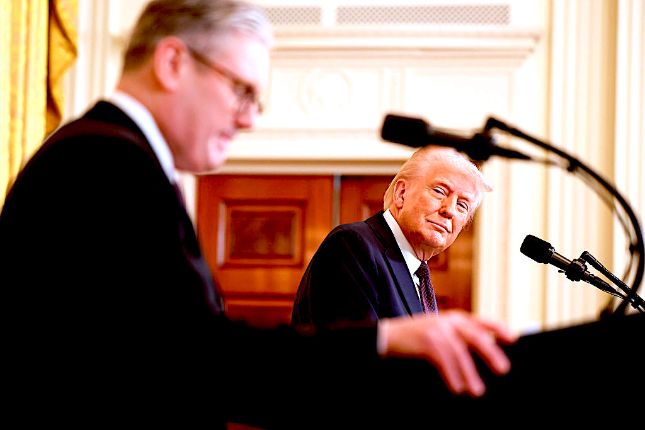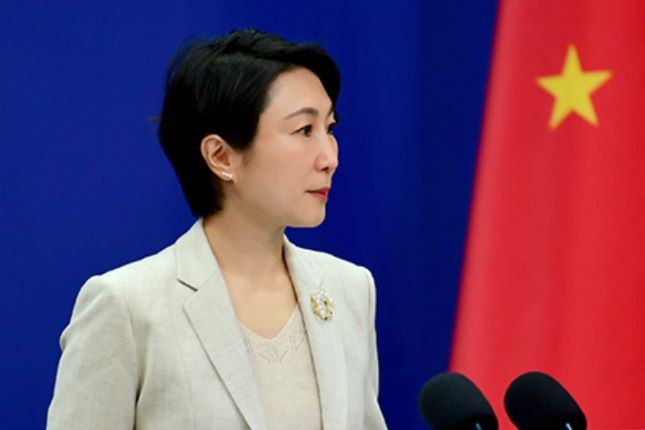A growing number of global financial institutions have in recent days increased or plan to increase their holdings of Chinese assets, as they express confidence in the recovery of the world's second-largest economy amid robust support measures, while other major economies, particularly the US, face rising economic risks, pushing investors to find other growth spots.
Global investors have already been pouring investment into China's financial market in recent months amid the country's economic recovery, and growing signs of troubles for the US economy, including the recent downgrade of its credit rating, could further accelerate the trend of increased foreign investments into China, analysts said on Monday.
Apart from measures to support overall economic growth, China is moving swiftly to make it easier for foreign investors to invest in Chinese assets, in contrast to US politicians' push for ever more restrictions on US financial institutions' Chinese investments, analysts pointed out, noting that global financial institutions will likely continue to expand investments in Chinese stocks and bonds in the coming months.
Growing optimism
The trend of global financial institutions pouring capital into the Chinese market has already taken shape in recent months. In the latest development, Bertelsmann Investments, one of Germany's biggest venture capital funds, plans to invest $700 million in Chinese start-ups, the Financial Times (FT) reported on Saturday.
Carsten Coesfeld, chief executive of the firm, said that there was "sometimes a bit of a disconnect" between the Western media portrayal of China's struggle to return to growth since the pandemic and reality, according to the FT.
While foreign media continue to hype claims of an economic slowdown in China, many foreign institutions continue to hold upbeat sentiment toward the Chinese market. A Global Times' review of research notes or market analysis published by more than half a dozen major global financial institutions, including Goldman Sachs, HSBC, UBS, Standard Chartered and Morgan Stanley, showed that all but one expressed optimism for the Chinese market.
While analysts at Morgan Stanley asserted that "investor confidence and conviction level are still very fragile," other major global financial institutions, whose research notes and relevant reports were reviewed by the Global Times, including Standard Chartered, Goldman Sachs and HSBC, remain upbeat about the Chinese market.
In its weekly market report released over the weekend, Standard Chartered said that global stocks tumbled for the first time last week after rating agency Fitch downgraded the US' credit rating, and as US growth continues to slow, a significant rise in yields is not expected. However, the report, which was released in Chinese, said that China's undervalued equities will benefit from a rotation in stocks in developed markets as China optimizes property policies and boosts consumption.
In the first half of 2023, Standard Chartered saw pre-tax profits from its onshore and offshore China business quadruple to $700 million and the Chinese market remains the largest contributor to Standard Chartered's overall revenue, according to a statement the bank sent to the Global Times.
"China is the power source of world economic stability and growth, and Standard Chartered is firmly optimistic about China's long-term development," Zhang Xiaolei, head Standard Chartered China, was quoted as saying in the Chinese statement.
UBS also said in a recent report that the investment bank remains bullish on Chinese stocks thanks to measures to boost consumption. Targeted measures to boost consumption of automobiles, electronics and home appliances will not only help boost revenue of related companies, but also benefit platform companies, the report said.
"Recently, we have seen accelerated inflow of foreign capital into the A-share market," Yang Delong, chief economist at Shenzhen-based First Seafront Fund Management Co, told the Global Times on Monday, noting that the amount of foreign capital flowing into A shares has exceeded 180 billion yuan so far this year, twice that of last year. "Foreign investors are accelerating their purchases."
Increasing investments
Such upbeat sentiment is reflected in the actual data. In the first six months of 2023, China's inbound foreign direct investment recorded a net inflow of $32.3 billion, with significant growth seen in investment in Chinese stocks and a gradual return to net inflow in investment in Chinese bonds, Wang Chunying, a spokesperson for the State Administration of Foreign Exchange (SAFE), said on Friday.
Hu Qimu, chief research fellow at the Sinosteel Economic Research Institute, said that the continuously improving sentiment of global investors toward Chinese assets is due to several factors, including the rising competitiveness of China's emerging industries, including electric car batteries, growing policy support for many areas such as foreign investment, recession risks in the US and Europe, as well as undervalued A shares.
"On the one hand, the Chinese market will be further opened up, and on the other hand, there are many supportive policy measures for the domestic economy. That means that there is a period of policy bonus for foreign capital to enter the Chinese market," Hu told the Global Times on Monday.
After a series of measures to boost development in various aspects of the Chinese economy, including consumption and the private sector, Chinese policymakers vowed to take more vigorous policy measures to bolster the economy, including a possible cut to the reserve requirement ratio, according to officials on Friday.
Chinese authorities have in recent days rolled out targeted policies to further improve the business environment for foreign businesses operating in the Chinese market, while vowing to continuously expand market access. During a meeting for work in the second half of 2023 last week, the People's Bank of China and SAFE said they will further facilitate foreign investors to increase their holdings of yuan assets, and promote the internationalization of the yuan in an orderly manner.
"With the further opening-up of China's capital market, the participation of foreign capital is also increasing. The inflow of foreign capital will bring more liquidity and vitality to the A-share market and play a positive role in the market trend," Yang said, adding that with the gradual implementation of a series of policies to stabilize economic growth, China's economy is expected to accelerate its recovery in the second half of the year.
However, even as the country continues to open up its market and create more opportunities for foreign investors, some US politicians are pushing for more restrictions on investments in the Chinese market based on a Cold War mentality and an over-stretched concept of national security.
Mike Gallagher, chair of the so-called China committee of the US House of Representatives, wrote a letter to US President Joe Biden, urging him to expand a reported forthcoming ban on certain US investments in China to cover US firms' purchases of Chinese stocks and bonds. Gallagher noted that over $200 billion of US capital is invested in Chinese companies through private markets, and more than $1.1 trillion of US capital is invested through public markets in Chinese stocks and bonds.
While US politicians are trying to use such radical moves to show their "toughness" on China for domestic political expediency, it will not stop the US firms from seeking profits in the Chinese market through investments, Hu said. "The US still depends on these big capital firms and this is something politicians cannot easily challenge."
Source: The Global Times.
































